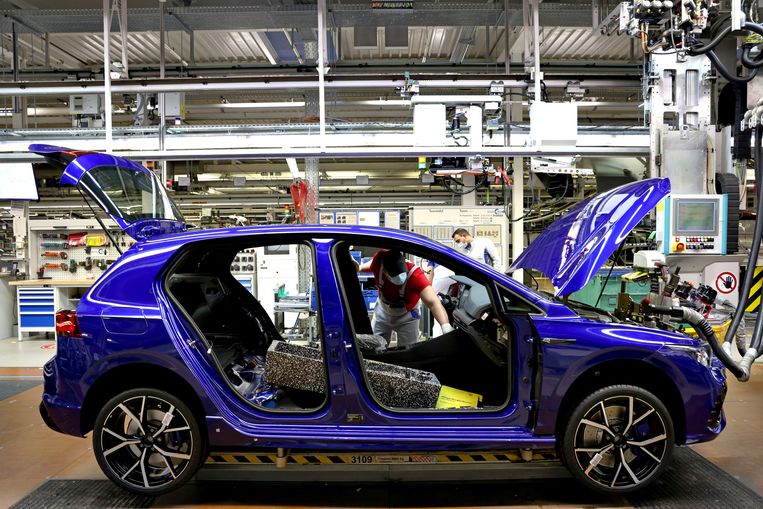Germany, the largest economy in the European Union, is officially in recession. How will this affect other Member States? “If Germany does not recover quickly, we will also notice.”
What is happening in Germany?
Gross domestic product fell by 0.3 percent in the first quarter of 2023, according to figures from Germany’s Federal Statistics Office (Destatis). Earlier, Destatis had predicted that the economy would stagnate. This is the second consecutive negative quarter for Germany.
In October, German Economics Minister Robert Habeck warned that the economy would slide into recession by 2023. He said it was a direct result of President Putin’s economic war on the West. Gas supplies from Russia were disrupted, which had disastrous consequences for German industry.
Thus, Germany, like other EU countries, is moving away from Russian dependence. But this has a huge impact. Gas from Russia was cheaper than the alternatives, LNG from the US for example. Chancellor Olaf Scholz traveled to the Gulf states in September and struck a deal with the United Arab Emirates.
Energy-intensive businesses have been hit hard, and Germany is the most industrialized economy in Europe. This is why rising energy costs have a greater impact on the economy, says economics professor Paul de Grauwe (London School of Economics/KU Leuven).
The decline over the past six months means that German GDP remains below pre-pandemic levels, in contrast to the eurozone economy as a whole. According to Destatis, production in the first quarter decreased by 0.5 percent compared to the same period a year earlier.
Does this hit the Germans in their wallets?
The direct result of a recession is higher food and energy prices. Due to economic headwinds, the purchasing power of Germans declined; They are becoming more careful about spending money. Although annual inflation slowed, it was still 7.2 percent higher in April than a year earlier. Less food, beverages, clothing and furniture were purchased in the first quarter of 2023 than in the last quarter of 2022. Fewer cars were also purchased, which is also likely related to subsidy cuts for electric vehicles this year.
Inflation is not the problem in Germany, says economist de Grauwe. Inflation in Germany may be slightly higher than in our country, but it is also declining there. Purchasing power has declined in Germany. There is a wage index in Belgium. The average Belgian has not lost purchasing power. The average German does that,” he explains. “If purchasing power decreases, consumption decreases. This is an additional element of the reason why the German economy entered a recession.
Is something going well?
Foreign trade is going well for Germany. Exports of goods and services rose by a total of 0.4 percent in the first quarter. And the German car industry certainly contributes to this.
It is precisely Germany’s car industry that is in trouble, says de Grauwe, and Germany has to catch up. Germany’s biggest competitor is China, which has achieved great success in electrification. Industry in Germany, de Grauwe says, is long overdue in dealing with the new technology. “Germany was successful in making traditional cars and invested a lot in them, but now they see this as dragging the initiative. When something new comes along, success in making traditional cars becomes a hindrance because they are not able to drop it,” the economist explains.
Will Belgium enter recession soon?
Germany’s economic development will lag internationally in 2023. The International Monetary Fund expects Germany to be the weakest performer of any of the world’s major economies this year.
At the European level, it is already clear that Germany is currently the worst boy in the class. In other large EU member states and in the EU as a whole, economic performance increased by an average of 0.2% in the first quarter of 2023. It is estimated that Belgian GDP grew by 0.4%.
Until recently, Germany was the center of power in the eurozone, and now it is much less so. De Grauwe analyzes that countries in the south are now doing better. We have always believed: the core countries in the north do better than the periphery in the south. Now that has been reversed.”
The Belgian economy is highly dependent on its eastern neighbours. For example, Belgium is an important supplier country for Germany (Belgian companies supply products to German factories). If Germany is not doing well, de Grauwe says, it’s not good news for us. “We are counting on Germany. If Germany does not recover quickly, we will also notice.” Industry makes up a smaller part of the total economy in Belgium than in Germany. De Grauwe: “Yes, this recession could extend to Belgium. I don’t make predictions because many other things could happen. But it is one of the possible scenarios.”

“Total coffee specialist. Hardcore reader. Incurable music scholar. Web guru. Freelance troublemaker. Problem solver. Travel trailblazer.”







More Stories
Bitcoin price rises after new jobs data from US
European stock markets open higher | beursduivel.be
Russia’s oil imports to China decline